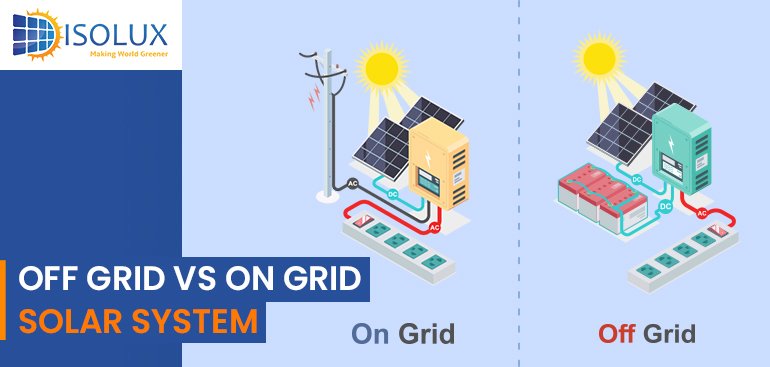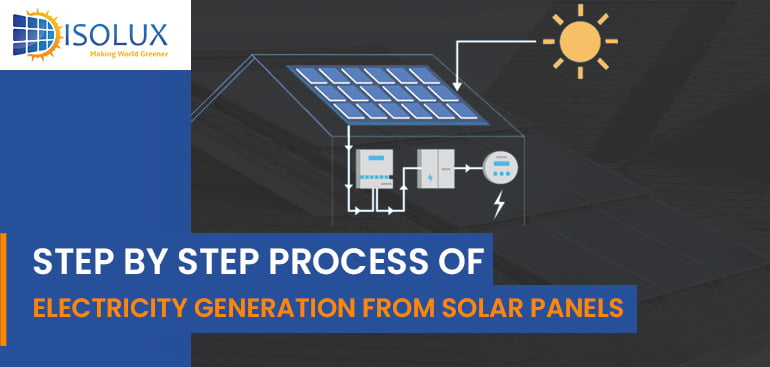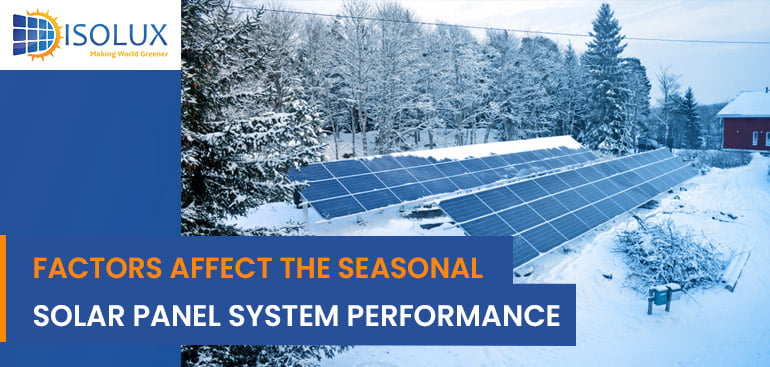As more Australians embrace sustainable energy, solar power has become a popular choice for homes and businesses. When considering solar installation, understanding the difference between off-grid and on-grid solar systems is crucial. Whether you are looking for energy independence or simply want to cut your electricity bills, knowing which system suits your needs can make a world of difference. Let’s get into the key differences between off-grid and on-grid solar systems and help you decide which is the best fit for you in Sydney.
What is an On-Grid Solar System?
An on-grid solar system, also known as a grid-tied system, is connected to the public electricity grid. This is the most common type of solar system for homes and businesses, offering a reliable and cost-effective solution. Here’s how it works:
Energy Production: The solar panels capture sunlight and convert it into electricity, which is then used to power your home or business.
Grid Connection: If your solar panels produce more energy than needed, the excess is fed back into the public grid, earning you credits or payments via a feed-in tariff.
Reliability: When the solar panels aren’t producing enough electricity (e.g., at night or during cloudy weather), your system automatically draws power from the grid.
Pros of On-Grid Solar Systems
Lower Initial Costs: On-grid systems do not require expensive batteries for energy storage, reducing upfront installation costs.
Feed-in Tariff: You can earn money or credits for the excess electricity your system generates.
Energy Security: You have continuous access to electricity, even if your solar panels aren’t generating enough power.
Scalable: These solar panel systems can be easily scaled up as energy needs increase.
Cons of On-Grid Solar Systems
No Power During Outages: Since on-grid systems rely on the grid, if there’s a power outage, your system won’t provide electricity unless paired with a backup battery.
Dependency on Grid Tariffs: If electricity prices increase, your savings might diminish over time.
What is an Off-Grid Solar System?
An off-grid solar system is entirely independent of the public electricity grid. It requires solar panels and batteries to store energy for use when the sun isn’t shining. This system is often ideal for remote locations or individuals seeking full energy independence.
Energy Production: Solar panels generate electricity, and the excess energy is stored in batteries for later use.
Complete Independence: Since you’re not connected to the grid, your home or business relies entirely on the solar energy produced and stored in your batteries.
Pros of Off-Grid Solar Systems
Energy Independence: Off-grid systems make you self-sufficient, eliminating any reliance on utility companies.
No Electricity Bills: Since you are not connected to the grid, you won’t be paying electricity bills.
Ideal for Remote Areas: Perfect for properties in remote areas where grid connections are unreliable or non-existent.
Cons of Off-Grid Solar Systems
Higher Initial Costs: Off-grid systems require a larger upfront investment due to the need for batteries and more solar panels to ensure adequate energy production and storage.
Battery Maintenance: Batteries have a limited lifespan and will need to be replaced over time, adding to long-term costs.
Energy Management: You must carefully manage energy use, especially during cloudy days or high-demand periods, to ensure your batteries don’t run out.
Also read: What is the Comparison Between Grid and Solar Energy?
Off-Grid Vs On-Grid: Key Differences
| Feature | On-Grid Solar System | Off-Grid Solar System |
| Connection | Connected to the public electricity grid | Completely independent of the grid |
| Power Backup | No power during grid outages | Power available during outages (with batteries) |
| Initial Cost | Lower due to no battery requirement | Higher due to battery and storage costs |
| Electricity Bills | Yes (but reduced) | No electricity bills |
| Energy Independence | Dependent on grid | Complete independence |
| Suitability | Ideal for areas with reliable grid access | Best for remote locations or energy independence seekers |
Which Solar System is Right for You?
Go for an On-Grid Solar System if:
You live in an area like Sydney with reliable grid infrastructure.
You want to reduce your energy bills while earning from feed-in tariffs.
You are looking for a cost-effective solution without the need for batteries.
Consider an Off-Grid Solar System if:
You live in a remote area with limited or no access to the public grid.
You seek complete energy independence and are willing to invest in a battery storage system.
You want to eliminate electricity bills altogether and don’t mind the higher initial setup costs.
Why Choose Isolux Solar for Your Installation?
At Isolux Solar, we specialize in both on-grid and off-grid solar system installations in Sydney. With years of experience in residential and commercial solar panel systems, we ensure that our clients get the best solutions tailored to their energy needs. Our team will help you determine whether an on-grid or off-grid system is more suitable for your property, and provide expert installation and support throughout the process.
Conclusion
Choosing between an off-grid and on-grid solar system depends on your specific needs, direction, location, and budget. For Sydney residents, an on-grid system is often the most practical and cost-effective choice due to the city’s reliable grid infrastructure and favorable solar policies. However, if you are looking for energy independence, an off-grid system could be worth the investment. Get a free quote from Isolux Solar today and find out which solar system is best for you!




